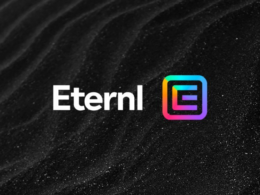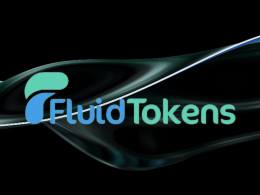Proposals on Catalyst that focus on end-user products look more attractive to most of the community than proposals that provide infrastructure and tools for developers. Whether they are wallets, DeFi protocols, bridges to interoperate with other blockchains, NFT marketplaces, among others, they get more attention, but for these developments to be offered, a background infrastructure is necessary, a backend so that developers can make them.
Being able to understand that infrastructure is necessary to develop final products is important, as is understanding which infrastructure proposals are most necessary. And this proposal is one of the most important.
Five Binaries is an infrastructure development company, focused on creating highly reliable custom solutions for blockchain-powered industries.
One of the Five Binaries projects is Blockfrost, which contributes to the creation of APIs for the Cardano decentralized blockchain. It is an instant, public and freely accessible API that removes infrastructure obstacles for developers to create DApps for Cardano. It’s a hosted API, which means developers don’t have to spend time building and configuring the infrastructure needed to run their own API, but can instead focus on developing these applications. You can read more in the article that I leave at the end (1).
MLabs has been working with IOG to build the Cardano Transaction Library (CTL), a framework for building Cardano transactions, and is now proposing to add Blockfrost as a query layer available within CTL.
The Proposal
Making Blockfrost easily accessible to DApp developers as a default, regardless of all other technical options, will help Blockfrost adoption grow.
Many DApps use Blockfrost as a so-called “query layer”, to inspect the state of the Cardano blockchain and to perform certain important actions, such as sending transactions and estimating fees. Some other services that can be used for this include Ogmios, Koios, and Carp.
Cardano Transaction Library is a set of tools for developers to build transactions for the Cardano Blockchain. Version 1.0, released in June 2022, sees chain adoption of various large-scale industrial DApps.
CTL is currently using Ogmios, a self-hosted solution, however some features available in Blockfrost are not available in Ogmios, requiring additional infrastructure. In fact, to successfully generate transactions today, a CTL user will need to run Ogmios, a Cardano node, and other utilities on a server.
While this level of infrastructure allows for a fully decentralizable open source system, setting up and maintaining a server is time consuming, and no one wants to run their own server.
A clear alternative is to enable Blockfrost as an alternative backend service. Instead of running their own servers, users provide a Blockfrost API key and any other required settings. Thus the maintenance of your server can be greatly reduced or eliminated. Due to the relative ease of use, it is expected that many developers will use the Blockfrost service as a default during development and production.
MLabs wants to accelerate the development of a Blockfrost Backend for CTLs, simplifying the infrastructure needed to run CTLs and allowing developers to take advantage of Blockfrost’s speed and reliability. This can happen without requiring a “glue code” between the Blockfrost API integration and cardano-serialization-lib.
Developers will be able to write high-level declarative code that describes how to build a transaction in a way inspired by the Plutus Application Backend (PAB). This makes the most of existing training in Plutus Pioneer courses, while having a set of production-ready tools.
By making Blockfrost an available option within the CTL framework, the team hopes that more developers will test and use Blockfrost effectively for many projects to come.
MLabs proposed the CTL, which received funding from Fund8, and has already achieved most of the milestones outlined in the proposal. You can read this proposal in my article, which I leave at the end (2).
The current proposal is low risk as it focuses on integrating a backend, and similar integrations have already been achieved.
The Roadmap
3 Months:
- Complete a version of CTL that can use Blockfrost for its transactions
- Show a DApp capable of switching easily between the Ogmios and Blockfrost options within CTL.
6 Months:
- Complete Blockfrost testing and reliability plans to ensure a positive user experience
- Complete a user experience report from the first DApp to adopt CTL using Blockfrost and address initial feedback.
Success measures will be:
- the number of features implemented
- the number of issues discovered and resolved
- the usability of CTL’s Blockfrost backend to projects that have incorporated it
- the number of contributors adding to the GitHub repo
- the number of Cardano projects relying on CTL
- the general perception of the project in the space
Accessibility is a strong point of the project, by making Blockfrost available, any developer will have the opportunity to easily test and use Blockfrost.
By optimizing the Blockfrost API, the requirement on the API learning curve will be reduced, offering an intuitive way to use the tools provided by Blockfrost for your most important use cases, such as smart contract operations and offline statistics collection. chain.
MLabs will report progress and milestones directly to the Cardano community, post demo videos on social media, and work with adoption partners to provide experience reports using new features.
The Budget
The team considers the requested funds to be sufficient to achieve the objectives, and currently does not intend to reapply for this project in future rounds of Catalyst.
Total requested: USD 50,000
- Set up basic Blockfrost API calls to match requirements: 105
- User API: Configuring Blockfrost: 40
- User API: Using Blockfrost interchangeably with default runtime: 40
- Format conversion functions: 65
- Testing: 165
- Demo & Polishing: 110
- Subtotal: 525
- Change Budget: 100
Total Time: 625 hours
The Team
MLabs is a Haskell development consultancy, serving the Cardano ecosystem. They have made contributions from tools, such as Plutarch, Plutip, and many others.
They have one of the largest groups of Haskell/Plutus developers in the community. They are IOG Plutus partners and regularly work with IOG to develop the Cardano blockchain and ecosystem, employing more than 80 developers, the company tells us.
The team is made up of talented developers who have helped build community projects like Liqwid. SundaeSwap, Optim, and many others. You can see the main members of the full team here.
MLabs has quickly become one of the leading development companies in the Cardano ecosystem.
Website MLabs: https://mlabs.city
Website Blockfrost: https://blockfrost.io
You can read the original proposal at Catalyst: MLabs – CTL Blockfrost Backend
. . .
(1) Blockfrost: A Dominant Player Building Developer Tools for Mass Adoption










